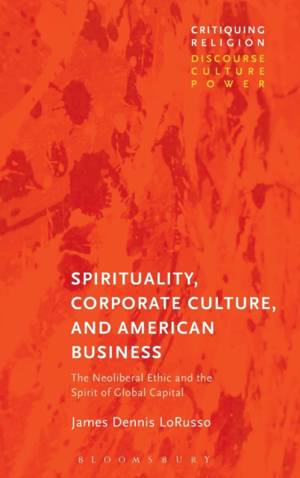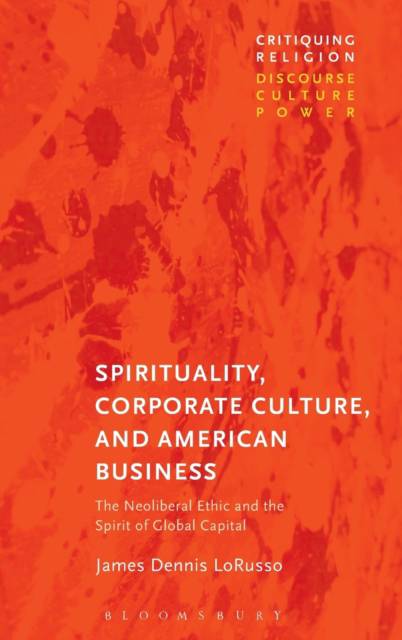
- Retrait gratuit dans votre magasin Club
- 7.000.000 titres dans notre catalogue
- Payer en toute sécurité
- Toujours un magasin près de chez vous
- Retrait gratuit dans votre magasin Club
- 7.000.000 titres dans notre catalogue
- Payer en toute sécurité
- Toujours un magasin près de chez vous
Spirituality, Corporate Culture, and American Business
The Neoliberal Ethic and the Spirit of Global Capital
James Dennis Lorusso
296,95 €
+ 593 points
Format
Description
By the early twenty-first century, Americans had embraced a holistic vision of work, that one's job should be imbued with meaning and purpose, that business should serve not only stockholders but also the common good, and that, for many, should attend to the "spiritual" health of individuals and society alike.
While many voices celebrate efforts to introduce "spirituality in the workplace" as a recent innovation that holds the potential to positively transform business and the American workplace, James Dennis LoRusso argues that workplace spirituality is in fact more closely aligned with neoliberal ideologies that serve the interests of private wealth and undermine the power of working people. LoRusso traces how this new moral language of business emerged as part of the larger shift away from the post-New Deal welfare state towards today's global market-oriented social order. Building on other studies that emphasize the link between American religious conservatism and the rise of global capitalism, LoRusso shows how progressive "spirituality" remains a vital part of this story as well. Drawing on cultural history as well as case studies from New York City and San Francisco of businesses and leading advocates of workplace spirituality, this book argues that religion reveals much about work, corporate culture, and business in contemporary America.Spécifications
Parties prenantes
- Auteur(s) :
- Editeur:
Contenu
- Nombre de pages :
- 216
- Langue:
- Anglais
- Collection :
Caractéristiques
- EAN:
- 9781350006270
- Date de parution :
- 09-02-17
- Format:
- Livre relié
- Format numérique:
- Genaaid
- Dimensions :
- 155 mm x 234 mm
- Poids :
- 612 g







